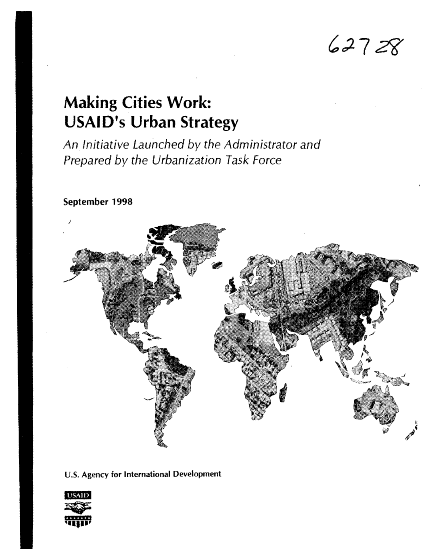
Well-functioning cities support economic and social growth, while dysfunctional cities impede environmentally sound and sustain- able development. As the world becomes more than 50 percent urbanized in the 21st century, U.S. development assistance pro- grams will be more successful and synergistic if they are conceived with an urban per- spective. This paper presents a "Making Cities Work" strategy for the U.S. Agency for Inter- national Development (USAID) to (a) internal- ize an urban perspective within its broader development activities; (b) increase oppor- tunities for cities to enhance development efforts and mitigate environmental threats, such as climate change; and (c) help enable cities to: - offer safe and healthy places to live, within a sustainable environment: - provide basic infrastructure and housing that serve all' their inhabitants; -feature robust economies, with with ample opportunities for employment; and - promote participatory democracy, with high levels of citizen satisfaction with local institutions.
Resource collections
- UN Habitat - Urban Response Collection
- Urban Response - Urban Crisis Preparedness and Risk Reduction
- Urban Response Collection - Community Engagement and Social Cohesion
- Urban Response Collection - Economic Recovery
- Urban Response Collection - Environment and Climate Change
- Urban Response Collection - Housing, Land and Property
- Urban Response Collection - Urban Crisis Response, Recovery and Reconstruction
- Urban Response Collection - Urban Resilience